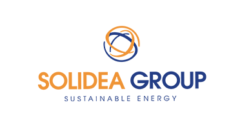Fuel Sovereignty Over Infrastructure Fantasy
While the Centralny Port Komunikacyjny (CPK) project has consumed headlines, the reality is that Poland’s air traffic future hinges not on infrastructure expansion but on decarbonised fuel availability. The premise of CPK — as a transit hub linking Europe to Russia and Asia — has lost relevance since the invasion of Ukraine. International passenger flows are shifting, and there is little economic or environmental case for new airports when Radom, recently opened, sits underused with almost no regular traffic.
Instead, the real opportunity lies in decarbonising what already exists: Warsaw Chopin, Gdańsk, Kraków, Wrocław, and key regional airports. LOT Polish Airlines, historically under-committed to SAF, now has the chance to reposition itself by embracing local, clean fuel. SAF from TITAN ensures LOT and Poland’s entire aviation sector can meet and exceed EU requirements, turning compliance into a competitive edge.
From Pilot to Platform: A New Model for Central Europe
TITAN is not an isolated installation. It is the template for a fleet of ten identical units, each capable of producing 2G EtOH and SAF, deployable across Poland and the broader CEE region. It is pre-FID, but fully engineered. With support from national programmes like NFOS and partners like BGK, TITAN is ready to lead Central Europe’s AtJ revolution.
In parallel, TITAN will host the first SAF refinery in Central Europe, anchored in Poland, delivering secure and scalable renewable fuel not only for domestic use but also for export under EU Green Deal frameworks and CBAM regulations.
Built on Policy. Delivered Through Action.
TITAN’s mission is directly aligned with:
- ReFuelEU Aviation Regulation (2023) – Binding SAF mandates, drop-in fuel requirement
- RED III Directive – Advanced biofuel priority from waste feedstock
- Fit for 55 – Industrial decarbonisation via non-fossil carbon streams
- CBAM – Carbon border penalties for imported high-carbon fuels and materials
And critically, TITAN delivers on the EU’s 2021–2023 call for preferential support to 2G ethanol as a strategic clean fuel of the future.
Conclusion: A Platform with Purpose
TITAN is more than a plant. It is a platform for the new energy economy. It turns local waste into international-grade fuels. It decouples aviation from oil and returns value to forest communities. It eliminates smokestacks while delivering strategic advantage. And it is made in Poland.
As the first TITAN prepares for launch, its roadmap is clear:
Build ten. Power a refinery. Decarbonise the skies.
Strategic Statement: Fuel First, Not Terminals
Poland’s air travel rebounded rapidly post-COVID, with total passenger traffic expected to exceed 65 million in 2025. But even by 2032, CPK’s business plan assumes it will handle 34 million passengers — over 50% of all projected national air traffic. Its long-term goal of 100 million would require doubling current demand or diverting traffic from every other airport.
Meanwhile, Warsaw–Radom Airport, predicted to be commercially viable, served only 114,000 passengers in 2024 and incurred over PLN 28 million in operating losses.
The reality is stark: new runways and terminals do not create passengers. Airlines and fuel access do.
LOT Polish Airlines, already burdened by historic losses and COVID-era bailouts, cannot thrive without access to cost-effective, domestic Sustainable Aviation Fuel (SAF). By 2030, EU mandates will require at least 6% SAF blending — failure to comply means escalating costs and fines.
If Poland fails to secure its own SAF supply by 2030, LOT may be forced to shrink, restructure, or be sold off entirely. Its future won’t be decided by airport real estate — but by whether it can refuel competitively and compliantly.
TITAN offers that future: a Polish-made platform, delivering scalable SAF through 2G ethanol, ready to roll out pre-FID. Investing in SAF sovereignty now will do more to secure Poland’s aviation future than any terminal ever could.

